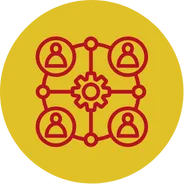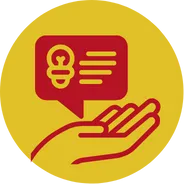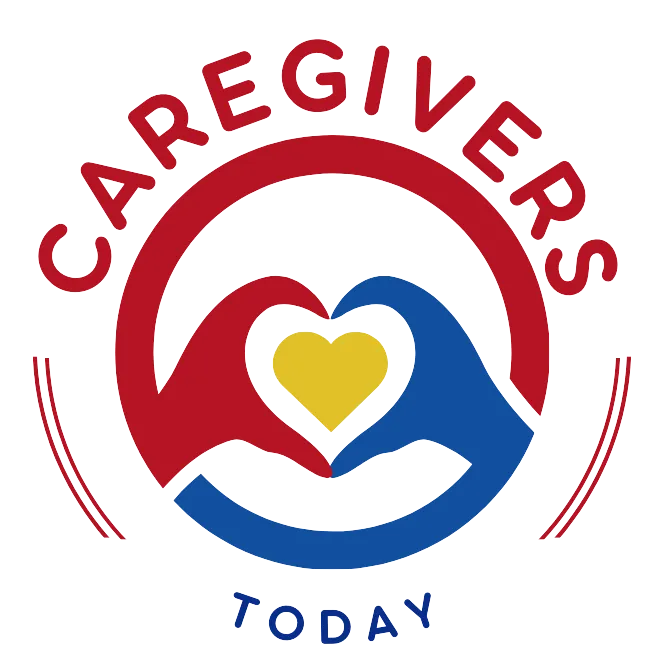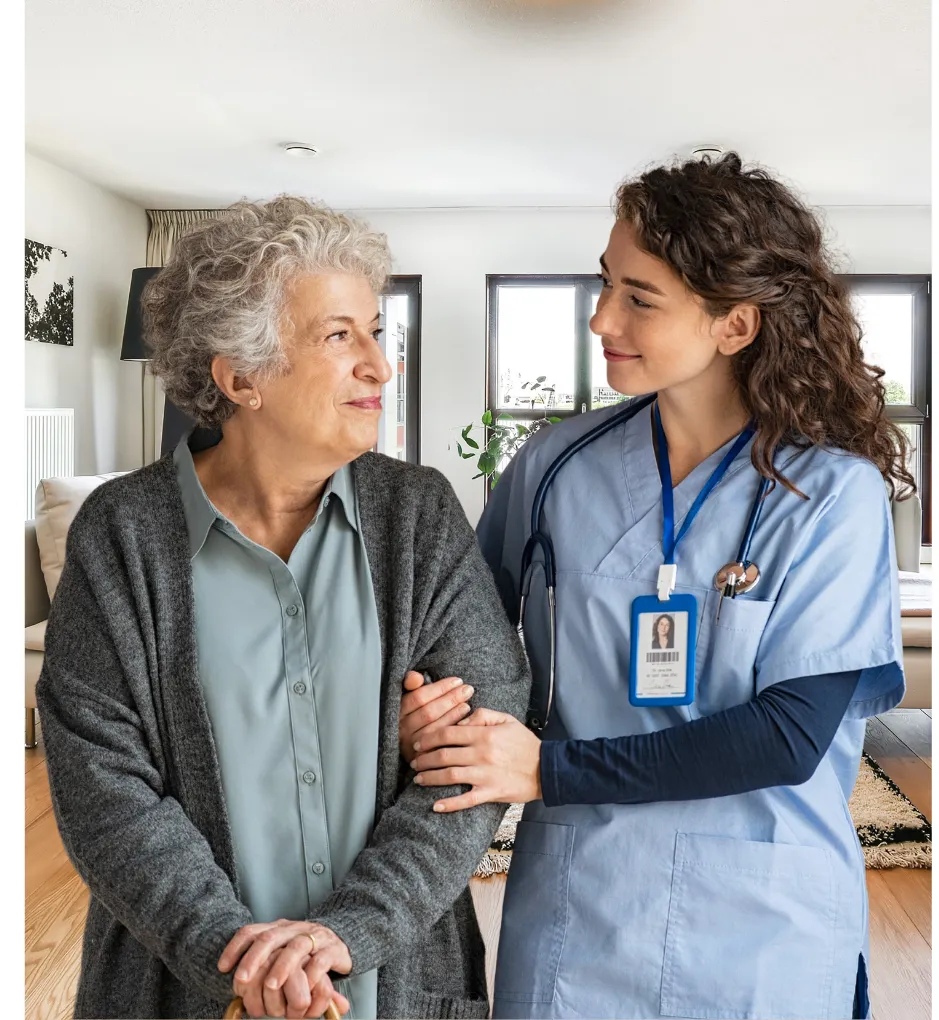
Proven Framework for Success
Our Calm Caregiving Course is designed and facilitated by experts in caregiving, with over two decades of hands-on experience and proven results in mentoring other caregivers.

Practical and Actionable Advice
Our coaches provide practical strategies for managing the day-to-day challenges of caregiving, as well as skills and techniques that can reshape the way you approach caregiving.

Empowered Caregivers
Join a community of caregivers, dedicated to the art of caregiving,
who uplift each other, spread knowledge, and empower every caregiver to provide the best possible care.

20k+Patients

20k+Families

500+Caregivers

About
Caregivers Today
Caregivers Today was launched by Alex J. Buison, to help caregivers by creating a community that can support and uplift each other. It's founded on his commitment to honor the legacy of those who cared for him and his dedication to passing the torch, spreading knowledge, and empowering every caregiver to provide the best possible care.
Are you ready to take control, transform your caregiving journey and become an empowered leader in our community?
Master stress management
Learn practical strategies to manage the day-to-day challenges of caregiving
Improve your quality of life as well as that of the person you're caring for
Reignite your passion
Revolutionize your approach
Acquire the tools and skills to teach and inspire others
Products & Services
Discover Our Top-Rated Skills Elevate Your Expertise with the Best Courses for Learning and Mastering Essential Abilities.
23,000+ more skillful courses you can explore
Upcoming Events
Our affiliate courses are designed by experts who have years of experience and proven results in the affiliate marketing industry.

Building a Support Network: Finding Help and Community
Being a caregiver can feel a lot like being a lone ranger. We know other caregivers are "out there," but our day-to-day lives don't allow us to meet with others who are facing the same challenges we f... ...more
caregiver
August 09, 2024•7 min read

Self-Care Strategies: Balancing Your Needs with Caregiving Responsibilities
Being a caregiver can feel a lot like being a lone ranger. We know other caregivers are "out there," but our day-to-day lives don't allow us to meet with others who are facing the same challenges we f... ...more
caregiver
August 09, 2024•6 min read
News & Updates
Building a Support Network: Finding Help and Community
Being a caregiver can feel a lot like being a lone ranger. We know other caregivers are "out there," but our day-to-day lives don't allow us to meet with others who are facing the same challenges we f... ...more
caregiver
August 09, 2024•7 min read

Self-Care Strategies: Balancing Your Needs with Caregiving Responsibilities
Being a caregiver can feel a lot like being a lone ranger. We know other caregivers are "out there," but our day-to-day lives don't allow us to meet with others who are facing the same challenges we f... ...more
caregiver
August 09, 2024•6 min read

What Our Customers Are Saying

"As a new caregiver, I was overwhelmed and unsure of where to start until I joined Caregivers Today. Their expertise, patience, and practical advice have equipped me with the skills and confidence I needed to provide the best care possible. I highly recommend their Calm Caregiving Course to any new caregiver seeking guidance and support."

Cody

"Before joining Caregivers Today, I was completely burned out and struggling to manage my caregiving responsibilities. Their insightful guidance and empathetic approach not only rejuvenated my passion for caregiving but also provided me with effective techniques to prevent burnout. I highly recommend the Calm Caregiving Course to any caregiver in need of support and revitalization."

Kristin

"Being part of the Caregivers Today community has been a game-changer for me. Their deep knowledge, strategic insights, and encouragement have empowered me to not only enhance my caregiving skills but also to inspire and support others in my community. I highly recommend their training to any caregiver aspiring to make a broader impact."

Albert
Are you ready to take control, transform your caregiving journey and become an empowered leader in our community?
Our affiliate courses are designed by experts who have years of experience and proven results in the affiliate marketing industry.
Frequently Asked Questions
Let's answer any of your questions
Can I get paid to care for a family member?
We receive hundreds of calls every year from family and friends asking, “How can I get paid to care?” These caregivers aren’t asking for a handout, they are simply trying to find a way to make ends meet while dedicating their time to caregiving. Unfortunately, very few programs pay family members or friends on a regular basis to provide care. Medicare (government health insurance for people age 65 and older) does not pay for long-term care services, such as in-home care and adult day services, whether or not such services are provided by a direct care worker or a family member. Sometimes, however, caregiving families may obtain financial relief for specific purposes, such as for respite care or to purchase goods and services, and in some cases, pay for caregiving. In some states there are programs that pay family members to provide care to those receiving Medicaid (government health insurance for low-income people — this program may go by a different name in your state). And in a very few states there are programs available to those who do not qualify for Medicaid. NOTE: These programs vary widely, often with complicated criteria for eligibility.
How can I find someone to help care for my family member at home?
Many older or disabled adults live at home but need daily assistance with a broad range of activities such as bathing, dressing, eating and taking their medications. They may also need assistance with household chores, such as cooking, cleaning and laundry. As a friend or relative, you may find it difficult to provide all of that help on your own. If you are providing care on a daily, weekly or even monthly basis, you may find that you need help or need a break. A variety of services are available to assist you and your family member.
Generally, two types of care in the home are available: home health care services and in-home care services. If your family member requires regular assistance with health care needs, home health care organizations and skilled nursing agencies may be the best choice for you. They can provide a range of medical services, such as medication assistance, nursing services, physical therapy and medical social services to coordinate care among health care providers. Medicare, Medicaid and a number of private insurance policies pay for some home health care services, with certain restrictions. For example, Medicare will cover limited home health care for homebound beneficiaries who need intermittent skilled nursing or therapy services as prescribed by a physician. Many families, however, have to pay out of pocket for home health care services.
How can I deal with my family member’s challenging behaviors without losing my patience?
People with cognitive impairment may exhibit a range of frustrating behavioral problems. These might include communication difficulties, becoming fixated on an idea or constantly repeating a question, aggressive or impulsive behaviors, paranoia, lack of motivation, memory problems, incontinence, poor judgment and wandering. Common causes of cognitive impairment include Alzheimer’s disease and related dementias, stroke, Parkinson’s disease, brain injury, brain tumor or HIV-associated dementia.
Various strategies can help you deal with challenging behaviors. In many communities, the Family Caregiver Support Program or another community organization offers classes and training sessions that teach skills useful in handling troublesome behavior. There you can receive information about your relative’s ability to understand and communicate. Joining a support group also can be helpful. A support group is a good place to share your frustrations and discuss coping strategies with people who are in the same situation, caring for their family members or friends. While many support groups meet in person, online and telephone groups also exist.
It’s important to remember that it’s the disease, not the person, causing the behavior. Anticipating that there will be ups and downs through the illness can provide important perspective to help, maintain your patience. Compassion and a sense of humor also may enable you to cope more effectively with difficult behavior.


